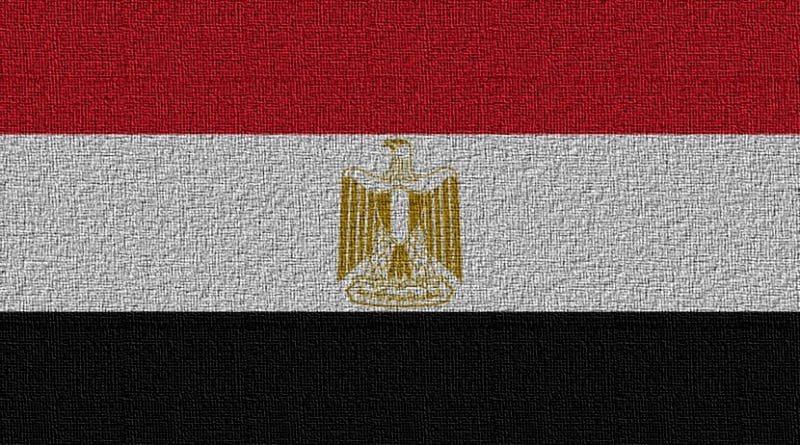Sinai Mosque Attack: A Massacre In Every Sense Of The Word – OpEd
By Arab News
By Abdellatif El-Menawy*
In response to Friday’s senseless slaughter of at least 235 Egyptians at the hands of terrorists, the Eiffel Tower has extinguished its lights. US President Donald Trump denounced the terrorist actions and UN Secretary-General Antonio Guterres issued a statement of condemnation. As the world leaders rushed to issue statements of condemnation and messages of condolence to the Egyptian people, President Abdel Fattah El-Sisi shared the grief and shock of his people. “Egypt is standing alone to fight terrorism on behalf of the world,” he said.
The Egyptians feel angry, bitter and frustrated because the statements of sympathy have not translated into concrete support for Cairo in its war against terrorism.
Yesterday afternoon, before Friday prayers were over, the worshippers at the Al-Rawdah mosque were surprised by a loud explosion. They ran out of the mosque to receive a barrage of bullets from dozens of masked men. According to preliminary estimates, approximately 235 people were killed and another 109 injured. It was a massacre in every sense of the word. The attackers in their savagery reportedly targeted ambulances that arrived on the scene to help the injured and dying.
The Al-Rawdah mosque is in the town of Bir Al-Abed, some 40 km west of Al-Arish city in North Sinai. Most of the mosque’s congregation are from the Sawarka tribe which is open in its support of the army and the police against the militants. It belongs to one of the Sufi orders called Jaririyeh. The mosque is frequented by Sufi Muslims who have long angered the terrorist groups by insisting on performing their rituals which Daesh considers un-Islamic. This has prompted terrorist organizations to issue severe warnings to the Sufis to stop their rituals. The most prominent of the Sufi leaders, Sheikh Sulaiman Abu Haraz, was martyred on Nov. 19, 2016. He was 98.
Sheikh Abu Haraz was one of the most important religious figures in North Sinai and had a great influence among the nomadic tribes who listened regularly to his sermons. He had also been threatened several times by Daesh.
“We say to all the Sufi followers and sheikhs in Egypt and abroad, that we will not allow the existence of Sufis in Egypt in general and in Sinai in particular,” Daesh said in an article published in one of its publications last year.
The Egyptian president condemned the massacre in the strongest terms and described it as “a sinful terrorist act.” He said the strong hand of justice would reach all those who participated in, contributed to, supported, financed or incited anyone to commit this cowardly attack on worshippers who should have been safe and secure inside the house of God.
El-Sisi said that Egypt was leading a war against terrorism with full force, and that terrorism would be defeated in the country. “The armed forces and the civilian police will avenge the martyrs and restore security and stability in the next few days,” he said. “We will respond to this act with brute force,” he said. Warning that the incident “aims to destroy the morale of Egyptians,” El-Sisi said: “This criminal sinful act increases our strength in the fight against terrorism.”
No group has so far claimed responsibility for the attack, but the evidence is that they belong to a group of religious extremists.
Hardly a week passes without an attack in the Sinai Peninsula or without Egyptian authorities announcing raids and security operations targeting a terrorist group. The heaviest attacks, however, are aimed at security forces and the army in Sinai which is the stronghold of Daesh.
The Egyptian government launched a military campaign in September 2015, but the terror group’s bloody attacks have continued.
The organization was formerly known as the “Ansar Bayt Al-Maqdis” (Supporters of Jerusalem) before announcing its allegiance to Daesh in November 2014.
The “Ansar Bayt Al-Maqdis” emerged after the events of January 2011 when Palestinian militants joined the Egyptian “Tawhid Wal Jihad” terror group, which was active in Sinai, and together formed “Wilayat Sinai” — which is a Daesh arm in Sinai. The group was first active in the Sinai Peninsula since its members were living in central Sinai.
The group became very active after the overthrow of former President Hosni Mubarak and targeted the Egyptian gas pipeline that passes through Sinai to Israel.
After the removal of the Muslim Brotherhood from power in Egypt, the group expanded its activities and began to focus on the Egyptian security forces and the army in Sinai and then expanded its operations to include Cairo and other towns and cities.
The group continued its operations until it reached the vast Western Sahara, whose oases were a tourist attraction. The topography of the Jubaila area provided ideal hiding places for the terrorists. It is also near the border of Libya which is suffering from chaos.
It is estimated that the number of members of the group ranges from 1,000 to 1,500 armed men in the Sinai Peninsula which covers an area of 60,000 sq km. It has been under martial law since October 2014.
Tomorrow, the Eiffel tower will be lit again. Life will resume as normal. But nobody will send help to Egypt which greatly increases the chances of nothing really changing.
• Abdellatif El-Menawy is a critically acclaimed multimedia journalist, writer and columnist who has covered war zones and conflicts worldwide. Twitter: @ALMenawy

